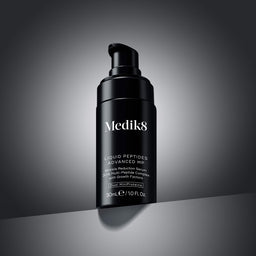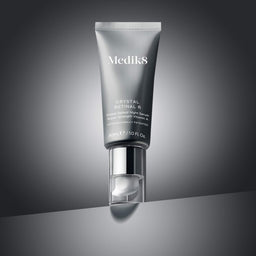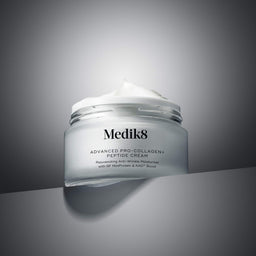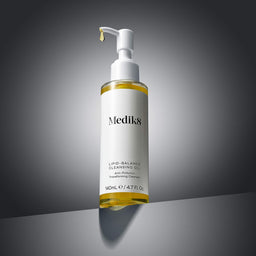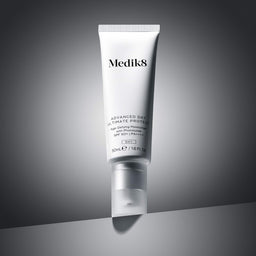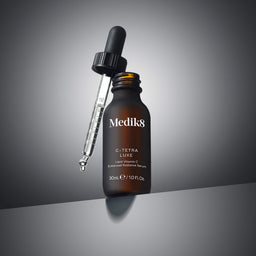Do Eye Creams Work and Do You Actually Need to Use Them?
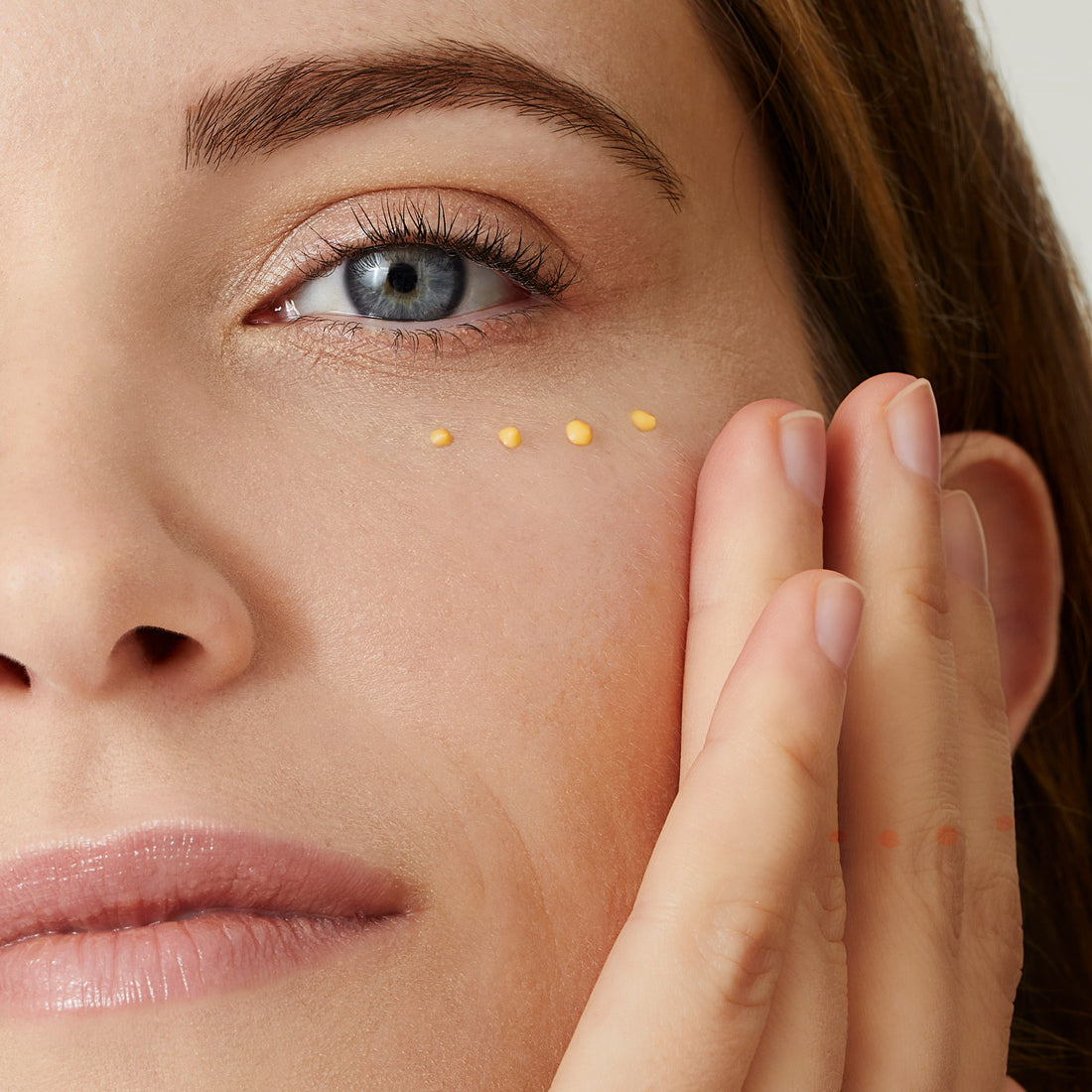
Today there are a whole host of different eye creams on the market, each claiming to address one specific, or even a multitude of eye concerns. But the core question is: are eye creams really necessary? And do they actually yield results?
While most, if not all, skincare lovers would deem a face cream an ‘essential’ part of their daily routine, this sentiment is not so widespread when it comes to eye creams. Perhaps this is because many consumers are unaware of the key differences between the two and the varied needs they serve. If that’s you then fear not, because the Medik8 experts are here to guide you through the intricacies of this ever-growing category.
What is eye cream?
An eye cream is a skincare formula, with a cream-like consistency, that’s specifically formulated for use around the eyes. What’s key to remember is that the needs of the eye area differ from other areas of the face because the skin around the eyes is much thinner and more delicate. This can lead to a number of issues that require very specific care. Most eye creams are formulated with similar base ingredients to a face moisturiser, however they often contain more targeted ingredients to tackle common eye area concerns such as lack of nourishment, irritation, or deep-set wrinkles and crow’s feet.
What about eye serums?
Although they are also formulated for the specific needs of the eye area, eye serums differ from eye creams as they are usually thinner and much lighter in texture - which allows for faster absorption and deeper penetration. Eye creams tend to be thicker in consistency with more sensorial textures.
Are eye creams really necessary?
When it comes to using skincare on the face and around the eyes, it isn’t a case of one size fits all. As previously mentioned, the skin around the eyes differs significantly from the skin on the rest of the face - being much thinner, drier and more prone to wrinkle formation. The skin on the eyelids and around the under eyes is actually the thinnest skin on the entire body, at only 0.5mm thick. Skin this delicate inevitably tends to be more prone to irritation, even if the skin is not particularly sensitive elsewhere on the face. Thinner skin also retains more fluid and fat, resulting in visible puffiness, while the translucency that accompanies thinner skin also worsens the appearance of dark circles.
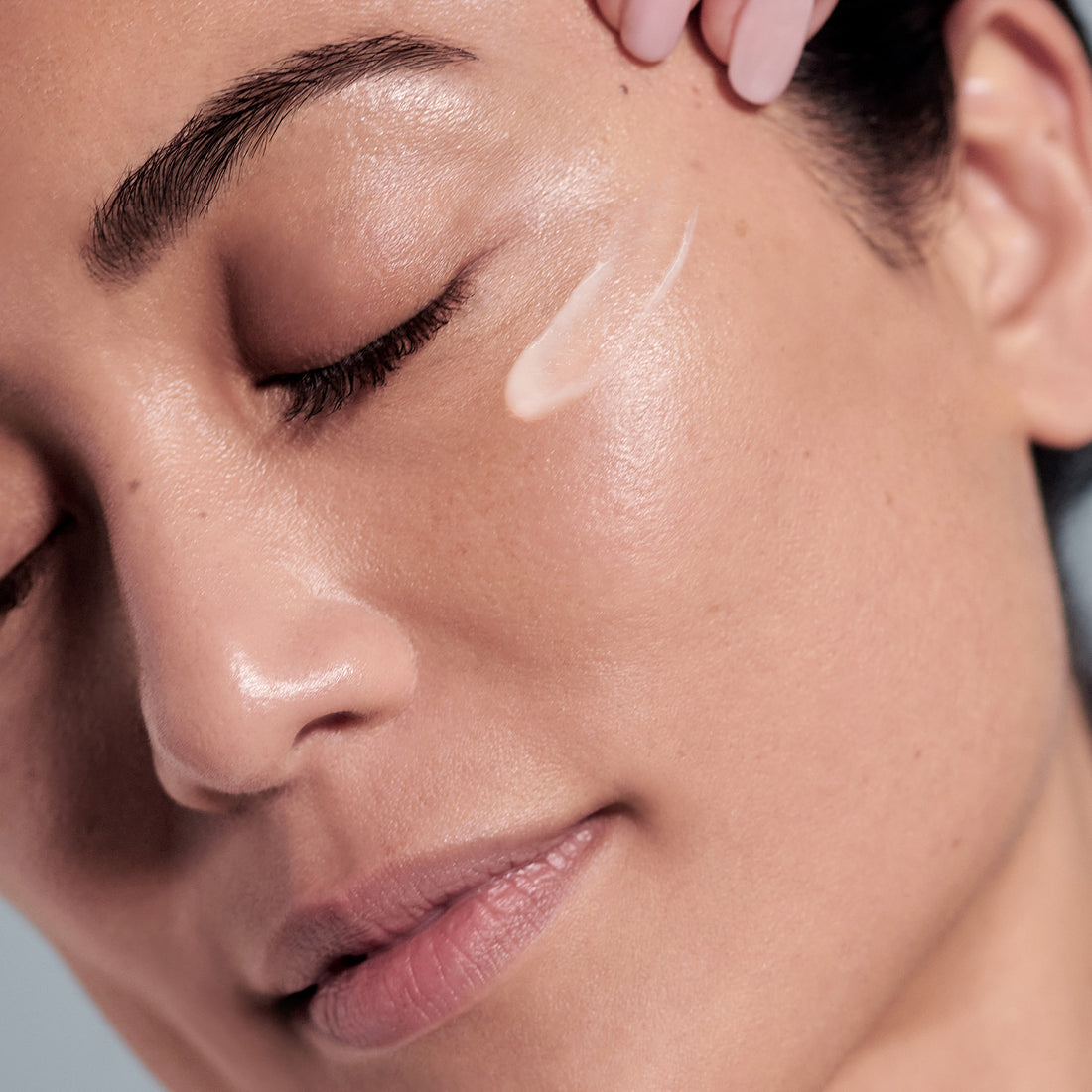
Unlike the skin on the forehead, chin, nose or cheeks, there are virtually no oil glands surrounding the eye area. This makes it much more prone to dryness as well as the formation of wrinkles. In fact, wrinkles are often deepest in the areas where oil glands are less concentrated, which is why crow’s feet are a typical first sign of ageing. Dryness around the eyes can also be caused by improper makeup removal, weather conditions, allergies and even genetics. Many formulas that are suitable for the face (where the skin is thicker and more resilient) can often irritate the very delicate skin around the eyes. And, if this wasn’t enough, the skin around the eyes is also under constant stress due to facial expressions, squinting and blinking. This daily muscle movement makes the skin even more prone to the formation of fine lines and wrinkles.
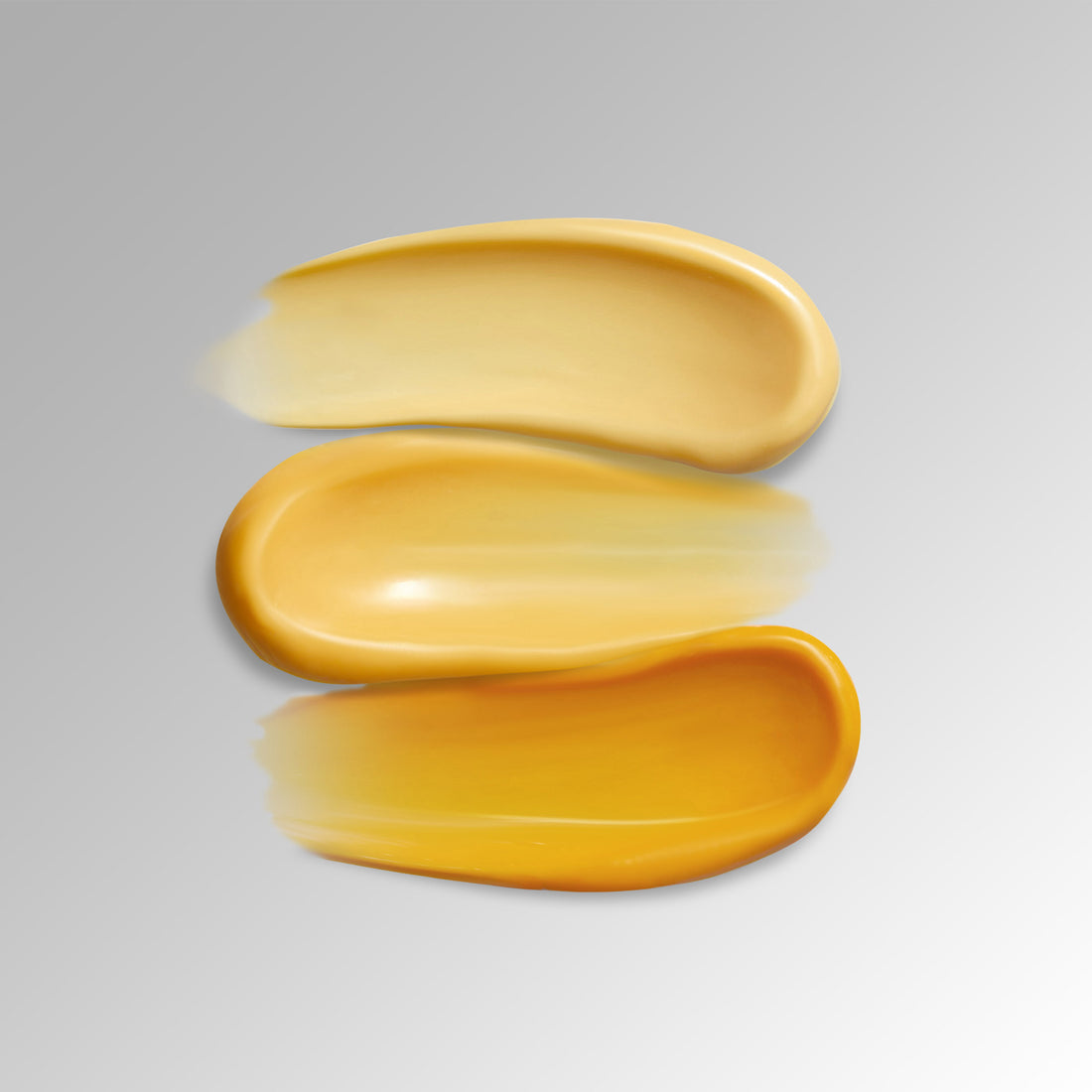
Key benefits of using an eye cream
Formulated with more targeted ingredients that are more suited to the specific needs of the eye area, eye creams can provide a number of essential benefits to target common eye-related concerns.
These include:
•Deeply nourishing dry areas
•Soothing irritation or inflammation
•Visibly smoothing the look of crow’s feet and wrinkles
•Reducing puffiness
•Improving the appearance of dark circles
Many eye creams offer at least one of these benefits, if not more.
When considering the various benefits of eye creams, it’s also important to bear in mind that the delicate skin around the eyes is particularly vulnerable to damage from UV rays - the biggest culprit for causing signs of premature ageing.
Medik8 recommends:
Crystal Retinal Ceramide Eye: our world-first formula that’s clinically proven to visibly brighten, smooth and depuff the eyes in just one use,* while providing nourishing care.
Advanced Day Eye Protect
: our eye-specialist sunscreen which delivers high-level, non-irritating protection against sun-induced signs of ageing around the eyes as well as essential hydration for this delicate area.
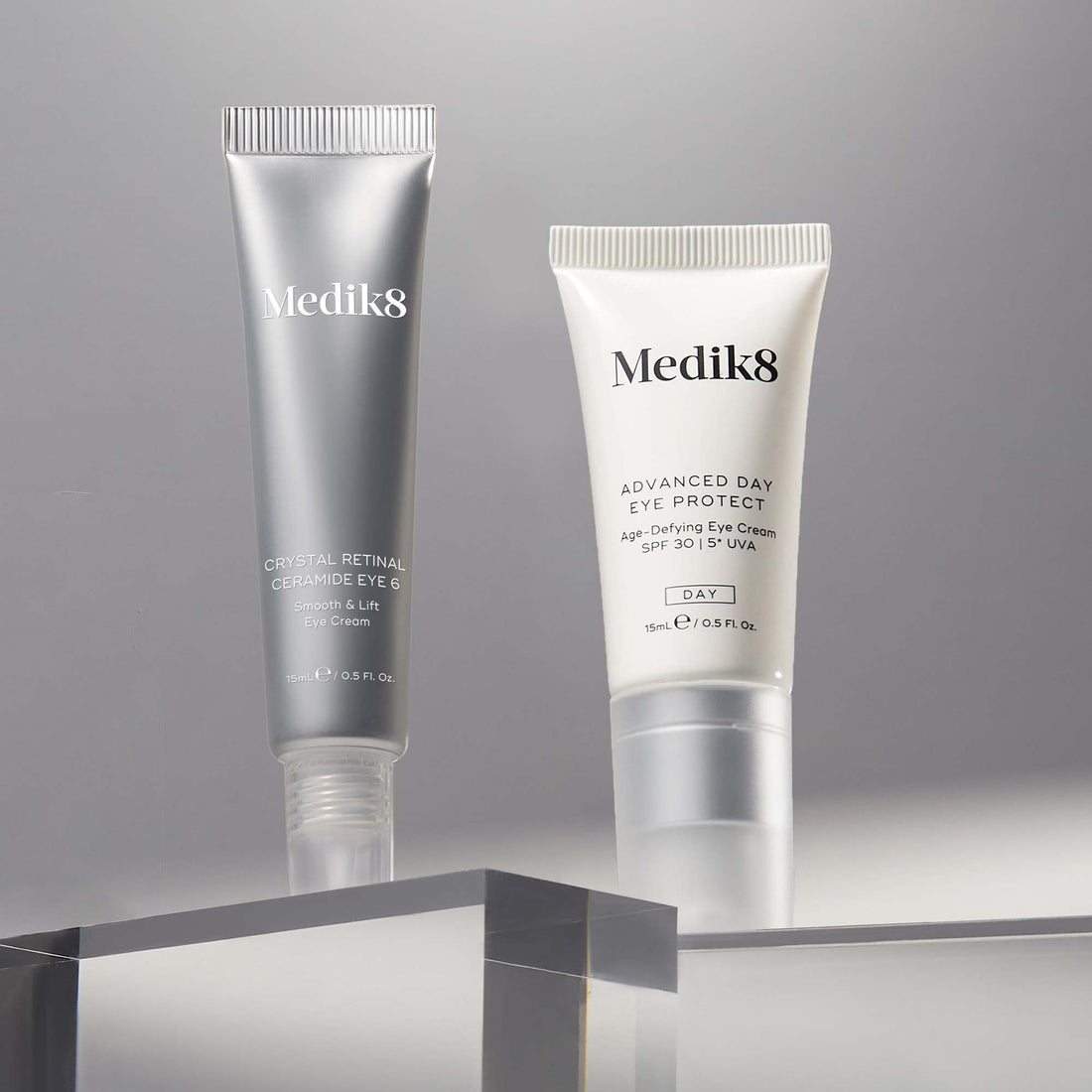
When should I use an eye cream?
Depending on the ingredients within the formula, eye creams can be used by all skin types - but may vary on whether they can be used day or night. For example, an eye cream containing vitamin C is ideal for the morning to boost visible brightness, while a retinal-infused eye cream should generally be used during the evening.
Generally speaking, eye creams should be applied after a face serum, but before a face moisturiser. If using an eye serum (as opposed to an eye cream), apply this after cleansing and toning (before any other serums or moisturisers). And for the best, most consistent results from your targeted eye creams, they should be used daily (depending on the active ingredients, of course). Always refer to the product packaging for usage guidelines.
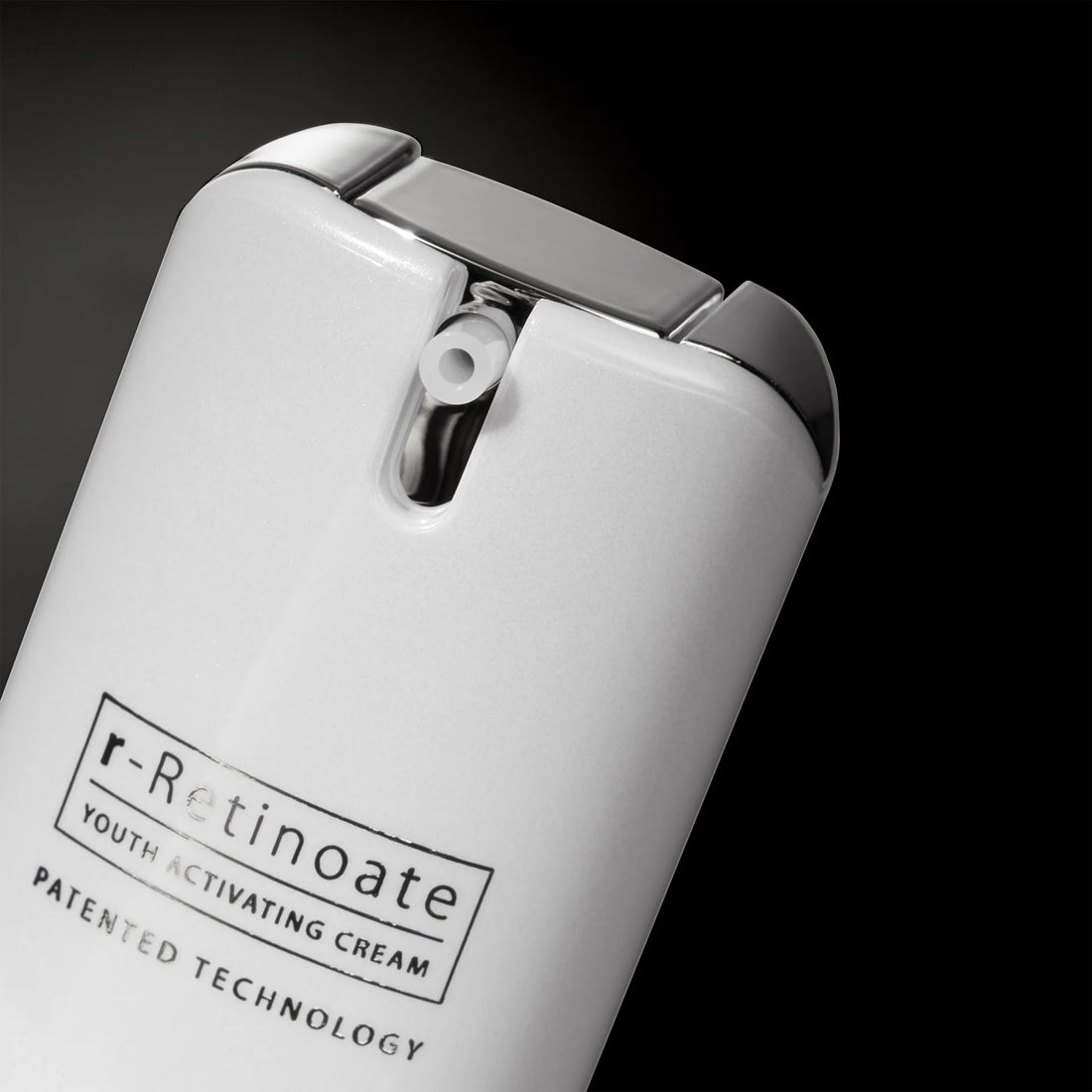
Medik8 recommends:
r-Retinote® Day & Night Eye Serum
: our pioneering eye serum that’s uniquely photostable meaning, unlike traditional forms of retinol, it can be used both day and night for accelerated results.
TOP TIP: When applying eye cream, gently dab the formula under the eye and follow with a light figure-of-8 motion around the orbital bone to both aid absorption and reduce visible puffiness.
Treating dark circles
When it comes to specifically treating the appearance of dark circles, vitamin C is an ideal option. Not only does this powerhouse ingredient provide antioxidant protection against the ageing effects of external stressors, but it also helps to visibly brighten the appearance of dark circles - promoting a more energised and refreshed eye area overall.
Another great option for reducing the appearance of dark circles is a formula that contains light-reflecting pigments which help to reflect the natural light off under eye darkness to help blur and diminish its appearance. Hesperidin is another great ingredient to look out for if your goal is to tone down the appearance of dark circles as it works to strengthen the capillaries under the eyes to help reduce visible darkness.
Medik8 recommends:
C-Tetra® Eye: for an ultra-lightweight, eye-brightening serum that harnesses all of the anti-ageing and illuminating powers of vitamin C while providing gentle and nourishing care.
Illuminating Eye Balm: A specialised eye formula which contains hydrating hyaluronic acid, cooling cucumber extract, and illuminating mineral pigments to help diminish the appearance of under eye darkness.
Eyelift Peptides:
Eyelift Peptides: a multi-action, anti-ageing eye serum which contains hesperidin to help improve the appearance of dark circles.
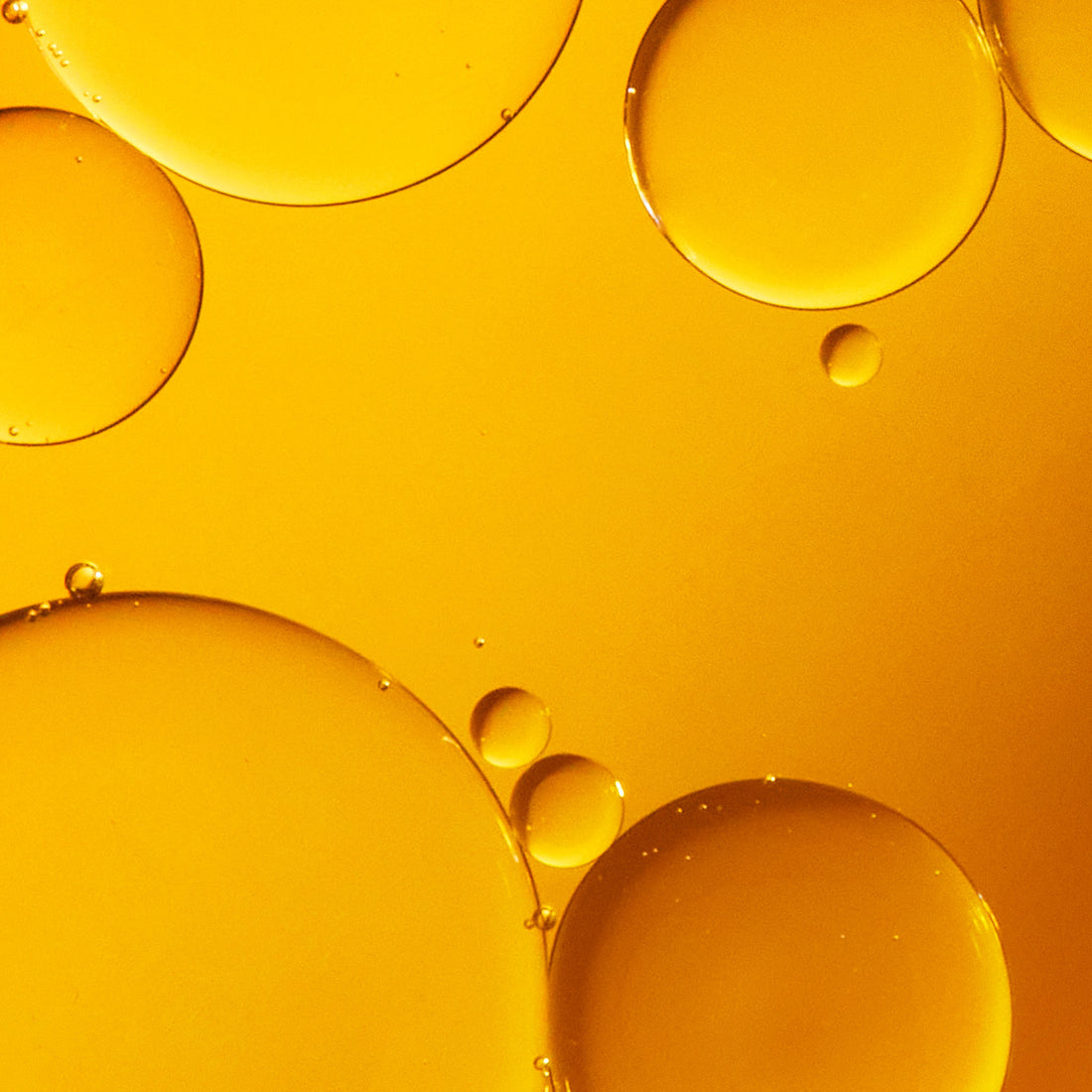
Improving the look of fine lines, wrinkles and crepiness
If you’re looking to visibly smooth the look of fine lines and wrinkles, then vitamin A is your answer. It’s a hero ingredient when it comes to boosting collagen production to smooth fine lines while refining uneven skin texture. However, there is often a lot of hesitancy when using retinol and retinals around the very delicate eye area due to the potential for sensitivity so ensure you’re using a formula that’s expertly optimised for the specific needs of the delicate eye area.
Another sure-fire way to prevent signs of premature ageing around the eye area is to wear sun protection every day. As previously mentioned, the ultra-delicate skin around the eye area is even more prone to UV-induced ageing than the rest of the face and should be sufficiently protected at all times to prevent the formation of crow’s feet, deep set wrinkles, pigmentation and irritation.
Medik8 recommends:
Crystal Retinal Ceramide Eye: the pinnacle of Medik8’s eye care expertise which delivers clinical-strength retinal while remaining ultra-gentle on the delicate eye area.
Advanced Day Eye Protect: for SPF 30 5* UVA protection that’s specifically formulated for the delicate eyes and delivers a deeply nourishing, brightening and depuffing effect.
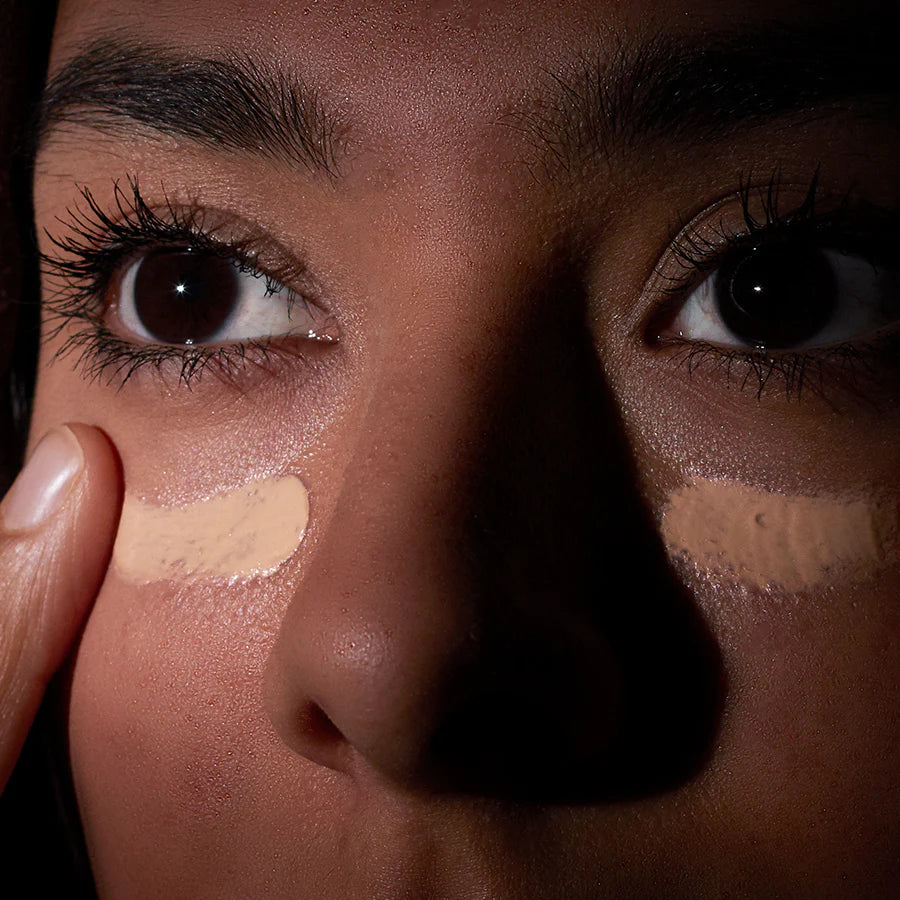
Reducing puffiness and under eye bags
When it comes to visibly depuffing the eye area, a caffeine-infused formula truly is your best friend. Caffeine works by visibly reducing the size of blood vessels to ultimately improve the appearance of puffy, tired-looking eyes. Also consider natural soothing extracts for reducing visible puffiness such as red algae extract and soothing cucumber extract. These ingredients use their anti-inflammatory powers to help regulate the osmotic pressure in the under eye area, therefore reducing visible puffiness.
Medik8 recommends:
Illuminating Eye Balm: Contains red algae extract and cucumber to both depuff and soothe under eye bags.
Soothing sensitivity or dryness
If you suffer from sensitivity or dryness around the eye area then it’s especially important to select formulas that are specifically formulated for the delicate nature of the eye area and are non-irritating as well as deeply hydrating. Eye care formulas containing the likes of antioxidants, ceramides, hyaluronic acid, glycerin, cucumber extract and chamomile extract are all excellent choices here.
But of course, before considering ingredients to tackle these issues, you should first always consider preventing them. Wearing SPF every day is an excellent way to do this. Not only does SPF prevent the formation of crow’s feet, wrinkles and pigmentation, but many SPF formulas also help to protect against the drying and irritating effects of UV rays with deeply nourishing extracts.
Medik8 recommends:
Crystal Retinal Ceramide Eye: expertly optimised for the delicate eye area by combining three of the above (ceramides, hyaluronic acid filling spheres and chamomile extract) to deliver deeply nourishing care alongside the age-defying results of twin-encapsulated retinaldehyde.
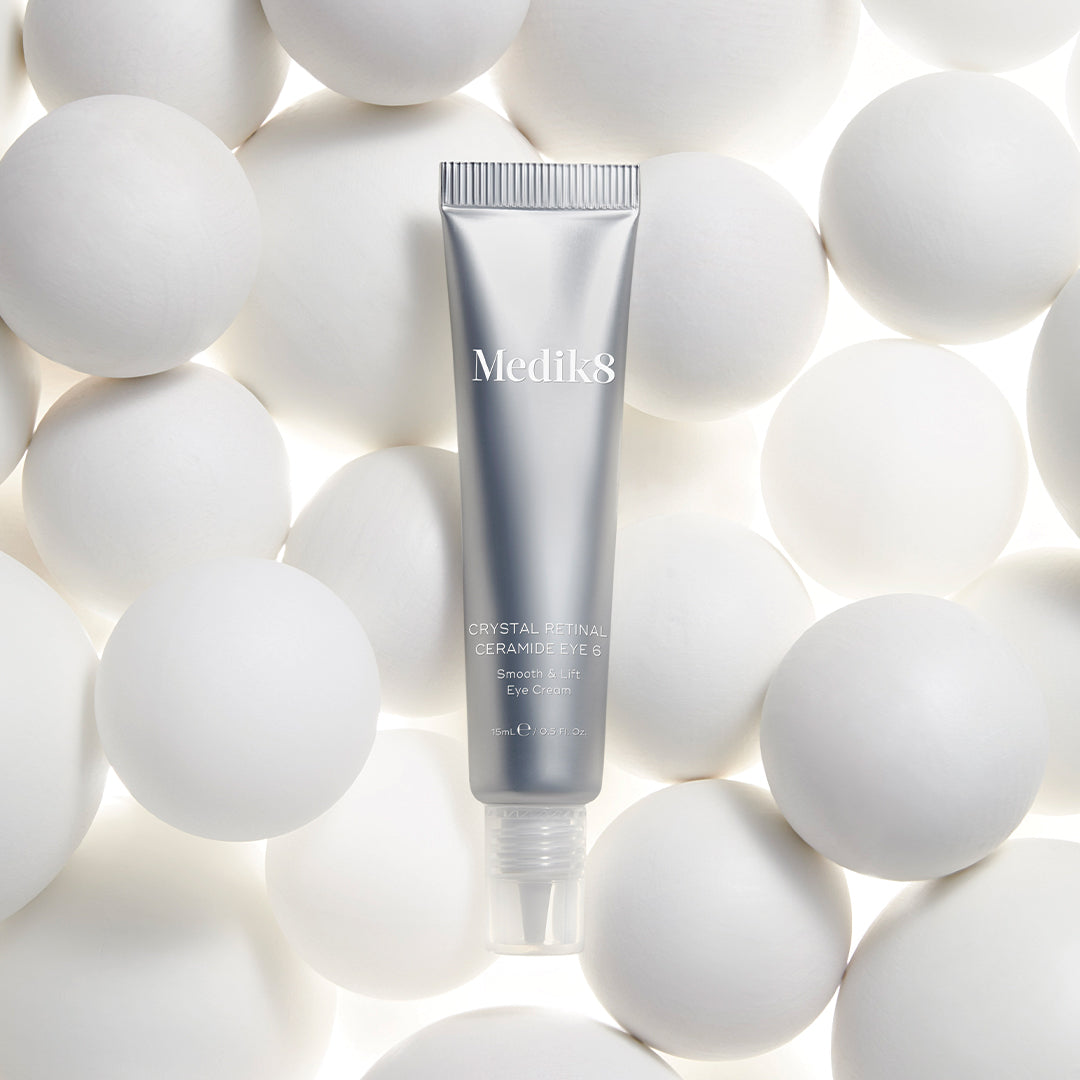
Choosing your eye cream & the best ingredients to look out for
Overwhelmed by information? Here’s our expert round-up of the key ingredients you should be looking out for in eye formulas and why.
Vitamin A (retinol / retinal): Visibly brightens, firms and smooths the appearance of fine lines.
TRY:
Crystal Retinal Ceramide Eye
SPF: Protects against signs of premature ageing around the eyes (usually the very first place visible ageing appears). Sufficient SPF protection also helps to shield against sensitivity, redness or dryness - all of which can be exacerbated by the sun.
TRY:
Advanced Day Eye Protect
Ceramides: Deeply nourish the delicate eye area while strengthening its natural barrier against moisture loss and visible crepiness as well as sensitivity.
TRY:
Crystal Retinal Ceramide Eye
Antioxidants: Protect against the ageing and irritating effects of external stressors, which the delicate eye area is especially susceptible to.
TRY:
Advanced Night Eye
Hyaluronic acid: With the ability to attract and retain more than 1,000 times its own weight in water, it draws moisture into the upper layers of the skin to visibly plump, firm and smooth the eye area while replenishing lost moisture to relieve dryness and irritation.
TRY:
Crystal Retinal Ceramide Eye
Or
r-Retinoate® Day & Night Eye Serum
Peptides: Help to boost collagen production to smooth the appearance of fine lines and wrinkles.
TRY: Eyelift Peptides
Vitamin C: Helps to boost collagen production for smoother-looking skin, protects against the ageing effects of free radicals, and visibly brightens the eye area for a more refreshed appearance.
TRY:
C Tetra® Eye
Light-reflecting pigments: Subtly-tinted minerals which reflect natural light to help visibly soften the appearance of under eye darkness.
TRY:
Illuminating Eye Balm
Hesperidin: Helps to improve blood circulation and strengthens capillary walls for brighter-looking under eyes.
TRY: Eyelift Peptides
FAQs
The skin around the eyes differs significantly from the skin on the rest of the face - being much thinner and drier. It’s therefore necessary to treat this area with special care. Because the skin around the eyes is especially delicate it’s more prone to irritation, wrinkles, visible puffiness, dark circles and UV damage.
Eye creams are formulated with targeted ingredients that are specifically suited to the needs of the eye area. They therefore provide many essential benefits including deeply nourishing dryness, soothing irritation and inflammation, smoothing the look of crow’s feet, reducing puffiness and brightening dark circles.
Although most eye creams are formulated with similar base ingredients to a face moisturiser, they often contain more targeted ingredients to tackle common eye area concerns such as lack of nourishment, irritation, or deep-set wrinkles and crow’s feet. These are more suited to the specific needs of the delicate eye area while many formulas that are designed for the face (where the skin is thicker and more resilient) can often irritate the very delicate skin around the eyes.
Generally speaking, eye creams should be applied after a face serum, but before a face moisturiser to ensure maximum penetration into the skin. Depending on the ingredients within the formula, eye creams can be used either day, night, or both. For example, an eye cream containing vitamin C is ideal for use in the morning while a retinal-infused eye cream should generally only be used during the evening. Always refer to the product packaging for usage guidelines.
For the most consistent and visible results, eye creams should be used daily. Eye creams should be applied after cleansing and toning, but before moisturiser.
Loose, crepey skin is a common concern around the eye area, often caused by the extreme muscle movement in this area due to talking, smiling and facial expressions. Vitamin A (retinoids) and peptides are hero ingredients when it comes to visibly firming the skin around the eyes as they both help to boost collagen production, therefore smoothing and plumping the skin for a tighter appearance.
Eye creams are suitable for all ages, as they aren’t just for anti-ageing purposes. If you suffer with any form of dryness, sensitivity or puffiness around the eyes, an eye cream can make a great addition to your everyday routine. Start using eye creams based on visible concerns - not age.
*Proven via independent clinical study on Crystal Retinal Ceramide Eye 6 conducted over 12 weeks on 32 participants
